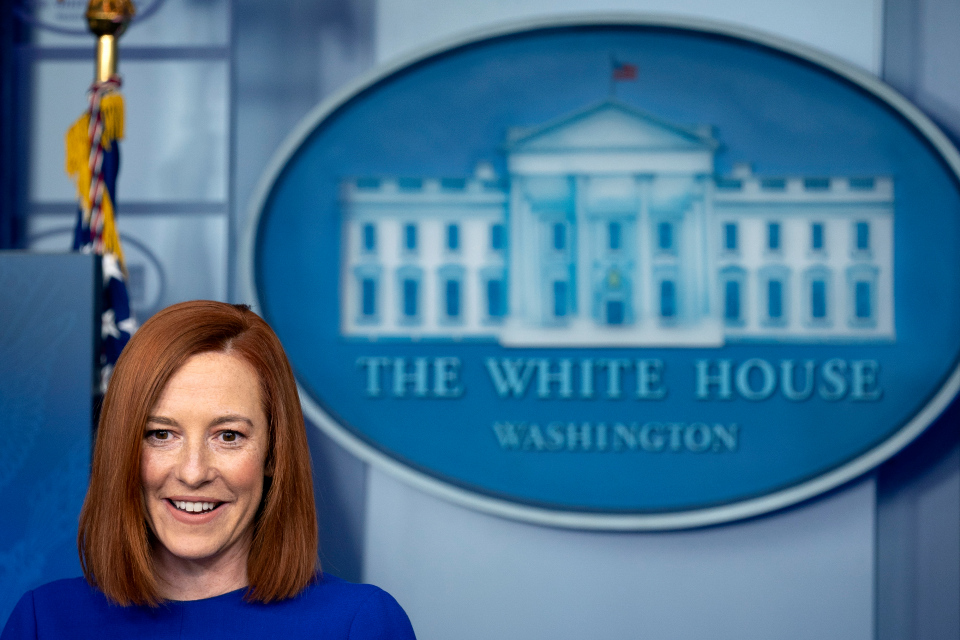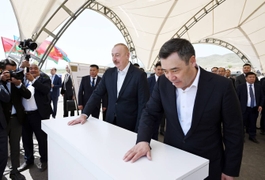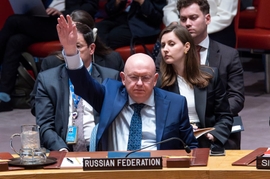The Kremlin welcomed US President Joe Biden’s proposal to extend the last remaining nuclear arms control treaty between the two countries – the New Strategic Arms Reduction Treaty, known as New START, and scheduled to lapse on February 5.
According to Kremlin spokesman Dmitry Peskov, Russia supports extending the pact, but everything will depend on the details.
“We can only welcome political will to extend the document," TASS quoted Peskov as saying as part of a conference call with reporters.
“But all will depend on the details of the proposal,” he added.
On his first full day in the Oval Office, the Biden administration said the US “intends to seek a five-year extension” of the world’s last remaining major arms control deal.
“The President has long been clear that the New START Treaty is in the national security interests of the United States. And this extension makes even more sense when the relationship with Russia is adversarial, as it is at this time,” White House press secretary Jen Psaki said in a briefing on Thursday.
Under the Treaty, the United States and Russia must meet limits on strategic arms, including intercontinental ballistic missiles (ICBMs), submarine-launched ballistic missiles (SLBMs), heavy bombers equipped for nuclear armaments, as well as nuclear warheads on deployed ICBMs, deployed SLBMs, and deployed heavy bombers equipped for nuclear armaments. The list also includes deployed and non-deployed ICBM launchers, SLBM launchers, and heavy bombers equipped for nuclear armaments.
Signed in 2010 by then-US President Barack Obama and Russian President Dmitry Medvedev, the New START has become the last tool that holds the former Cold War foes from starting a new arms race. The situation has worsened even more after the demise of the Intermediate-Range Nuclear Forces (INF) Treaty, a Cold War-era agreement, and most recently, the Open Skies Treaty.
Russia has long proposed to extend the pact without any conditions or changes, but the administration of the Former US President Donald Trump made a late bid to prolong the treaty on a set of demands unacceptable for Moscow. The talks between delegations from Russia and the United States hit an impasse mainly due to the Trump administration's hopes for a new trilateral treaty involving China. Beijing, however, has rejected that proposal.
Talks on the treaty’s extension were also clouded by growing tensions between Russia and the United States.
Meanwhile, the treaty extension proposal does not mean the US is planning to extend an olive branch to Russia. During the briefing, Psaki stressed that Biden had tasked the US intelligence community with a “full assessment of the SolarWinds cyber breach, Russian interference in the 2020 election, its use of chemical weapons against opposition leader Alexei Navalny, and the alleged bounties on American soldiers in Afghanistan.”
A few days ahead of Biden’s inauguration, US security services uncovered a massive cyber-espionage attack on US government computers they have blamed on Russia. Also, Moscow arrested Alexei Navalny, a Russian opposition politician and anti-corruption activist. Navalny accused Russian spies of nearly killing him in August with a Novichok-like substance, a nerve agent developed in the Soviet Union and Russia.







 President Ilham Aliyev shed light on the evolving contours of the peace process with Armenia during an international conference in Baku this week. ...
President Ilham Aliyev shed light on the evolving contours of the peace process with Armenia during an international conference in Baku this week. ...
 Azerbaijan and Armenia started the process of demarcation of their border on Tuesday, with the installation of the first border markers based on ge...
Azerbaijan and Armenia started the process of demarcation of their border on Tuesday, with the installation of the first border markers based on ge...
 Iran and Pakistan have signed eight cooperation documents in various fields, and agreed to strengthen ties to fight terrorism in the region.
Iran and Pakistan have signed eight cooperation documents in various fields, and agreed to strengthen ties to fight terrorism in the region.
 Iranian President Ebrahim Raisi expressed Tehran’s readiness to participate in significant development projects in Sri Lanka during the inauguratio...
Iranian President Ebrahim Raisi expressed Tehran’s readiness to participate in significant development projects in Sri Lanka during the inauguratio...
 As the conflict between Ukraine and Russia escalates, the strategic importance of Kharkiv, Ukraine's second-largest city, has come sharply into focus.
As the conflict between Ukraine and Russia escalates, the strategic importance of Kharkiv, Ukraine's second-largest city, has come sharply into focus.



